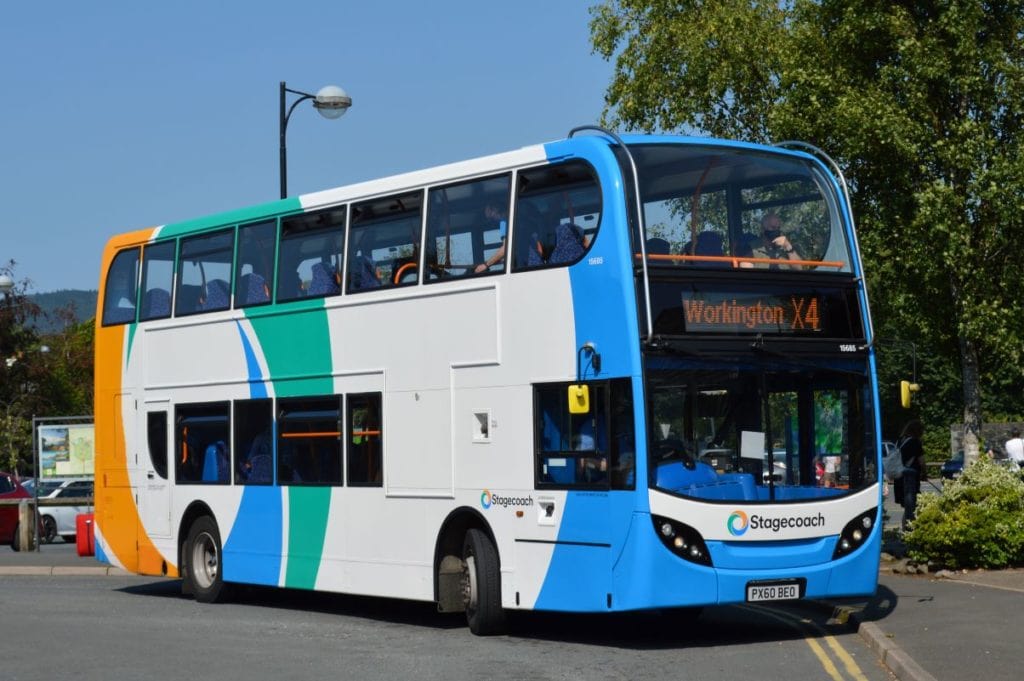
The number of bus journeys undertaken in Cumbria has fallen by almost half over the last decade, new figures show.
The Government introduced a £2 cap on all bus journeys outside London last year to encourage more people to travel by bus.
Initially slated to end in March, the scheme has been extended by three months from April to June 30, while a further £80 million in funding has been provided to protect vital bus services during the same time period.
The Campaign for Better Transport said the added investment was welcome, but urged the Government to implement long-term funding reform to encourage more people to take the bus.
Department for Transport figures show passengers took 9.4 million bus journeys in Cumbria in the year to March.
This was up from 4.9 million the year before – which was impacted by the coronavirus pandemic – but was down significantly on pre-pandemic levels.
In 2019-20, the last full year before the pandemic, Cumbria passengers took 12.9 million journeys, while over the last decade, services have been dropped by 47 per cent.
Across England there were 2.8 billion bus journeys in 2021-22 – down from 4.1 billion in 2019-20.
A decade ago there were 4.6 billion journeys, and the number of trips has fallen every year since 2013-14 bar last year due to the pandemic.
Paul Tuohy, chief executive of the campaign group, said: “This will reassure communities across the country who are reliant on buses to access work, education, and healthcare.
“However, another extension only gets us so far. We are urging the Government to implement long-term funding reform to avoid more uncertainty and give everyone access to affordable and reliable bus services.”
David Renard, transport spokesperson for the Local Government Association, said the Government must use the time the funding buys “to work with councils and operators to develop a long-term, reformed bus funding model with significant new money”.
The figures also show there were 18.7 journeys per person in Cumbria in 2021-22 – up from 9.9.
Meanwhile, elderly or disabled passengers accounted for three million (32 per cent) journeys.
Transport Secretary Mark Harper said: “Travelling by bus remains the most popular option for commuters and families across the country, but the sector is still trying to recover after the end of the pandemic.
“We’re providing £155 million to help passengers save money on fares, get more people on the bus and protect vital bus routes – helping with the cost of living and enabling people to get where they need to in an affordable and convenient way.”








